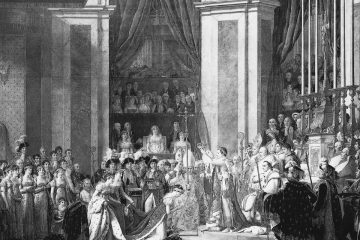What Happened On February 27th?
On February 27th, 1943, the extraordinary power of collective action was tested against the most extreme right-wing group the world has ever seen. In Nazi-controlled Berlin, through a non-violent protest (spearheaded by the wives and relatives of 2,000 Jewish men who were detained for deportation), the Nazi authorities were shocked and surrendered.
In a chilling operation dubbed the “Final Roundup,” the Gestapo began arresting Jewish men married to non-Jewish women, those deemed “mixed-race,” and others with certain exemptions. These men were held at Rosenstraße 2-4, a Jewish community center, where horror was inflected on countless others.
Yet, courage upheld, starting a resistance. Driven by love and desperation, the wives, mothers, and sisters of these men gathered outside the building on Rosenstraße. Initially protesting in small numbers, their ranks rapidly swelled, reaching an estimated 6,000 over the course of a week. The unexpected act of defiance stunned the Nazi authorities.
Armed with only their voices and determination, these ordinary women dared to stand against the machinery of the Third Reich. They chanted, pleaded, and refused to leave, even in the face of threats and potential violence. This display of courage and solidarity created a powerful dilemma for the Nazis, who were wary of creating public disorder amidst a war effort heavily reliant on propaganda and keeping up appearances.
News of the Rosenstraße protest reverberated throughout Berlin and beyond and inspired hope by challenging the illusion of total Nazi control. The fear-infused silence had been momentarily shattered, and the regime was forced to consider the potential ramifications of escalating force against this largely non-violent demonstration.
Incredibly, against all odds, the women of Rosenstraße prevailed. On March 6th, 1943, Joseph Goebbels, the propaganda minister, ordered the release of the intermarried Jews. The majority ultimately survived the Holocaust!
While the Rosenstrasse protest cannot erase the horrors of the Nazi regime, it gave hope to the people in a time of unspeakable suffering. Even in the darkest of times, when violence and oppression seem insurmountable, the human spirit can find a way to resist and fight for what is right.
Questions, Comments, Concerns?
What is so incredible to me about this rebellion, is that the women and relatives of those who were being deported were non-violent.
Despite what Nazi authorities were doing and the harm they were inflicting, the protestors held back their anger and malice through non-violence.
If you have any questions or thoughts, please leave them in the comments.





